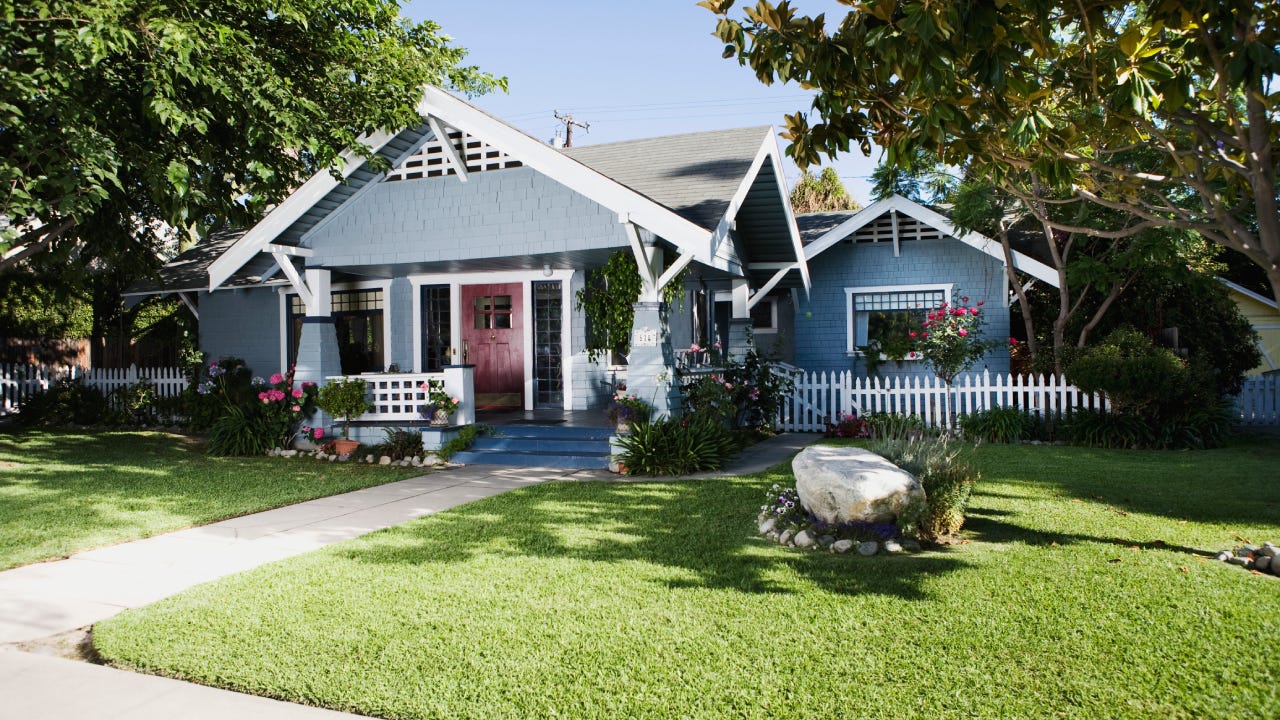How much house can I afford if I make $120,000 a year?

Today’s housing market is tough for everyone, even on a $120,000 salary. Your income puts you in the upper half of American earners, well above the median household income of $74,580, per Census data. However, high mortgage rates and steep home prices are deterring many would-be homeowners, even high-earning ones. Read on to learn how much house you can afford if you’re making $120,000 per year.
The 28/36 rule
Scratching your head about how much house you can comfortably afford? Many experts recommend following the 28/36 rule, a guideline suggesting that you limit your monthly housing costs to no more than 28 percent of your monthly income, and your total debt payments — including housing expenses — to no more than 36 percent.
Let’s break that down. A $120,000 salary equates to $10,000 per month, and 28 percent of $10,000 is $2,800, so that should be your cap on monthly housing expenses. Bankrate’s mortgage calculator shows that, with a 20 percent down payment on a 30-year fixed-rate loan at 7 percent interest, the monthly principal and interest payment will be $2,501 on a home of $470,000. That leaves you some breathing room to add in variables like property taxes, homeowners insurance and HOA fees (if applicable) before reaching the $2,800 mark. So, assuming you have enough to cover that down payment plus more left over for upkeep and emergencies — and also assuming your other monthly debts don’t take you over that 36 percent figure — you should be able to afford a home of $470,000 on your salary.
How much house can you afford?
Income isn’t the only factor influencing how much house you can afford, though. Factors like your savings, credit score and desired location will all shape your homebuying power:
Savings and down payment
If you have a sizable chunk of savings, you’ll be at an advantage in the homebuying process. Mortgage lenders like to see that you have enough of a cushion to comfortably cover maintenance and unexpected repairs.
And the traditional down payment of 20 percent is not necessarily mandatory, but if you can put down at least that much you will reap several benefits. For one, you avoid paying private mortgage insurance premiums, which add to your monthly housing costs. In addition, the more you pay upfront, the less you have to borrow, which means lower payments and less interest paid over the life of the loan. It may also help snag you a more competitive interest rate than you would get with a smaller down payment.
Credit score and debt-to-income ratio
Your credit score is one of the most important parts of your mortgage application. Low scores cause lenders to view you as a risky borrower, and they’ll charge you a higher rate if your score is subpar. The higher your credit score, the better rate you’re likely to qualify for. Lenders will also scrutinize your debt-to-income ratio, or the percentage of your income that goes towards debt payments.
Location and amenities
A home budget of $470,000 means you’ll have options priced above the national median price, which was $407,100 as of August 2023. However, even this relatively high budget will stretch further in some areas than others. If you’d rather live in a mansion than a cramped condo, you’ll probably be out of luck in the nation’s priciest metro areas. For example, in Indianapolis, where Redfin data shows the median home price is about half of your budget at $240K, $470K will buy quite a lot, and probably with lots of upgrades and land too. But in San Diego, where the median is almost double at more than $930K? Probably not so much.
Home financing options
Getting preapproved for a mortgage is the best way to get a firm grasp on how much you can actually borrow. It can also be crucial in a competitive market, showing sellers who might have multiple offers that you are a serious, qualified buyer. Preapproval isn’t a formal commitment, so you’re not obligated to get your official mortgage through the same lender that preapproved you.
Different types of loans
There are many types of home loans, each with their own pros and cons. Some, like FHA loans, have lower minimum credit scores and down payment requirements. Even a conventional loan can be had for just 3 percent down if you qualify. However, given your high income, you could be ineligible for some options — and in the long run, it’s better to put down more if you can afford to.
First-time homebuyer programs
Saving for a down payment can feel especially daunting if you’re buying a home for the first time. Several national, state and local programs are available to help ease that financial burden, most of which provide grants and low-interest or forgivable loans. Eligibility for down payment assistance programs is usually income-based, so you may not qualify based on your $120,000 salary, but it’s worth checking.
Get started
In most parts of the country, a $120,000 annual salary can afford you a very comfortable, and even luxurious home. But mortgage rates are high, which hampers your buying power. So consider whether now is the right time to buy a house, based on your current life and financial circumstances. How far will your budget stretch in your desired area right now? What’s next for you, your family and your job? If you decide to take the plunge, don’t do it alone: Work with an experienced local real estate agent who can help guide you to a great home at a price you feel good about.
Why we ask for feedback Your feedback helps us improve our content and services. It takes less than a minute to complete.
Your responses are anonymous and will only be used for improving our website.
You may also like






